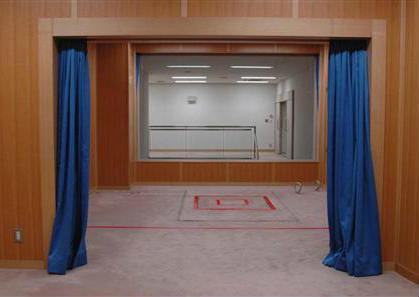TOKYO – Japan executed two death row prisoners on Friday, the justice ministry said, dismissing calls from international rights groups to end capital punishment.
Convicted murderers Yasutoshi Kamata and Junko Yoshida were executed by hanging, bringing the total number of people put to death since Prime Minister Shinzo Abe came to power in 2012 to 16.
Yoshida, 56, killed two men in the late 1990s as part of a plot to obtain insurance money, the justice ministry said. She is the fifth woman to be executed in more than 60 years.
Kamata, 75, was convicted of murdering four women between 1985 and 1994 – and a nine-year-old girl who started screaming as he tried to sexually abuse her.
Justice Minister Mitsuhide Iwaki, who authorised the executions, said they had committed “extremely heinous” crimes that “took the precious lives of the victims for very selfish reasons”.
Japan and the United States are the only wealthy democracies that still use capital punishment, and rights group Amnesty International said Tokyo’s decision was a step backwards.
“The execution of two death-row inmates is extremely deplorable, and goes against the global trend for abolishing capital punishment,” said Hideki Wakabayashi, its Japan secretary general.
“Despite the fact that about 140 countries in the world have already abandoned or have stopped executions for more than a decade, the Japanese government is turning its back on the trend,” he told AFP.
The death penalty has overwhelming public support in Japan, according to surveys, despite repeated protests from European governments and human rights groups.
Advocacy groups say Japan’s system is cruel because inmates can wait for their executions for many years in solitary confinement and are only told of their impending death a few hours ahead of time.
Iwaki, who authorised the executions, defended the executions, saying the death sentence is a “grave punishment” that “requires careful implementation”.
“At the same time, in a country ruled by law, enforcement of a court verdict has to be carried out with strict fairness,” he told reporters.
In December, Japan executed two death row prisoners, including for the first time someone sentenced to death after a trial involving a jury.
Those sparked criticism by the European Union, which called the death penalty “cruel and inhuman” and demanded Japan impose a moratorium on executions.
Wakabayashi also said Tokyo should be “severely criticised” for carrying out the executions just ahead of the Group of Seven summit due to be held in Japan in late May.
Japan in 2009 launched a jury system in which citizens deliberate with professional judges in a bid to boost the role of the citizenry in the judicial process.





